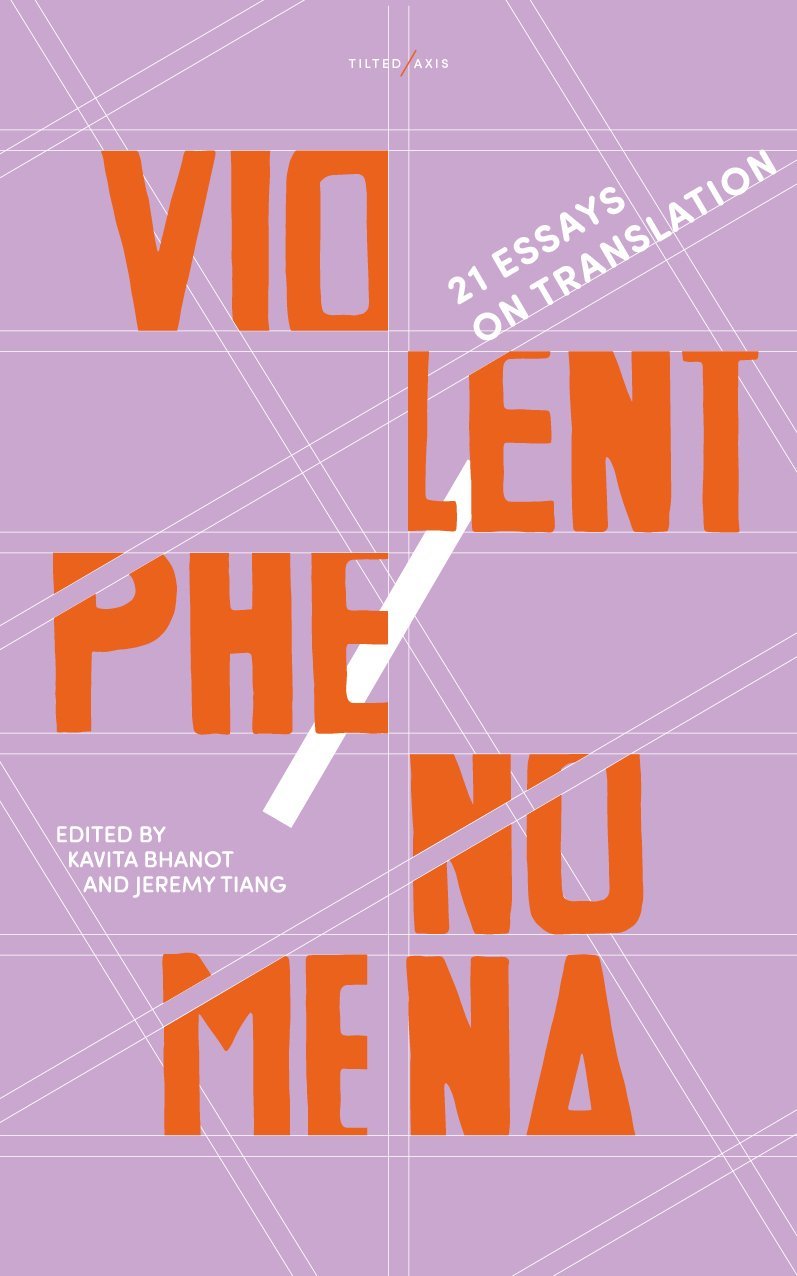
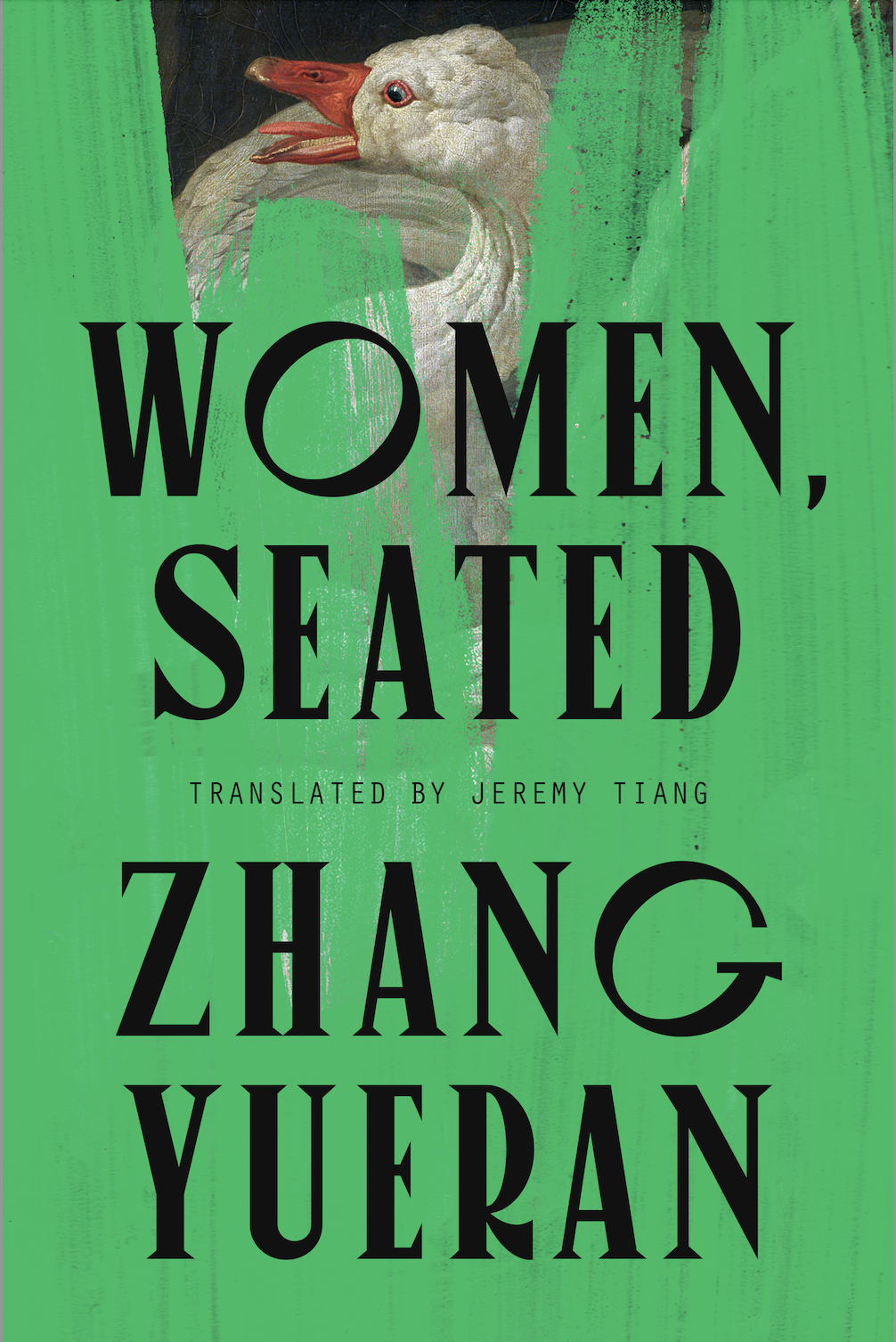
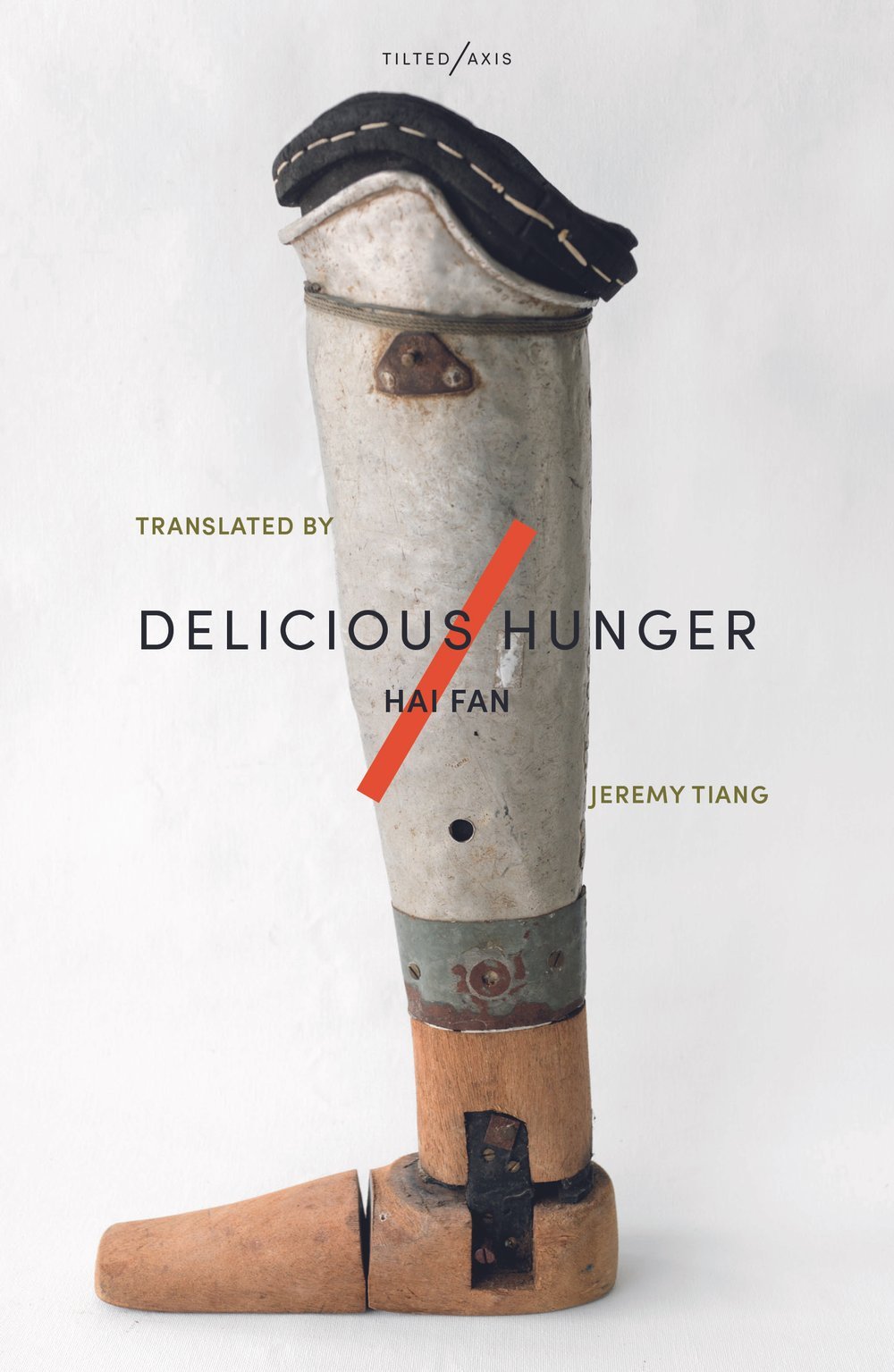

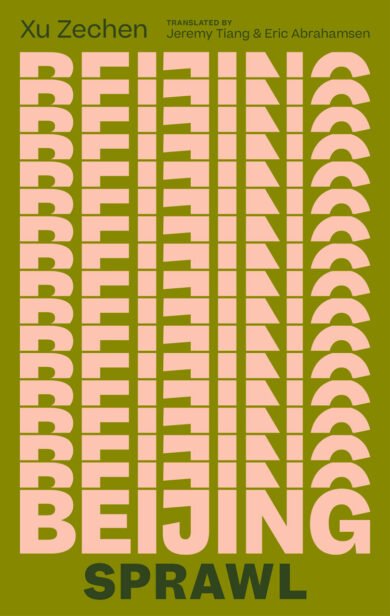
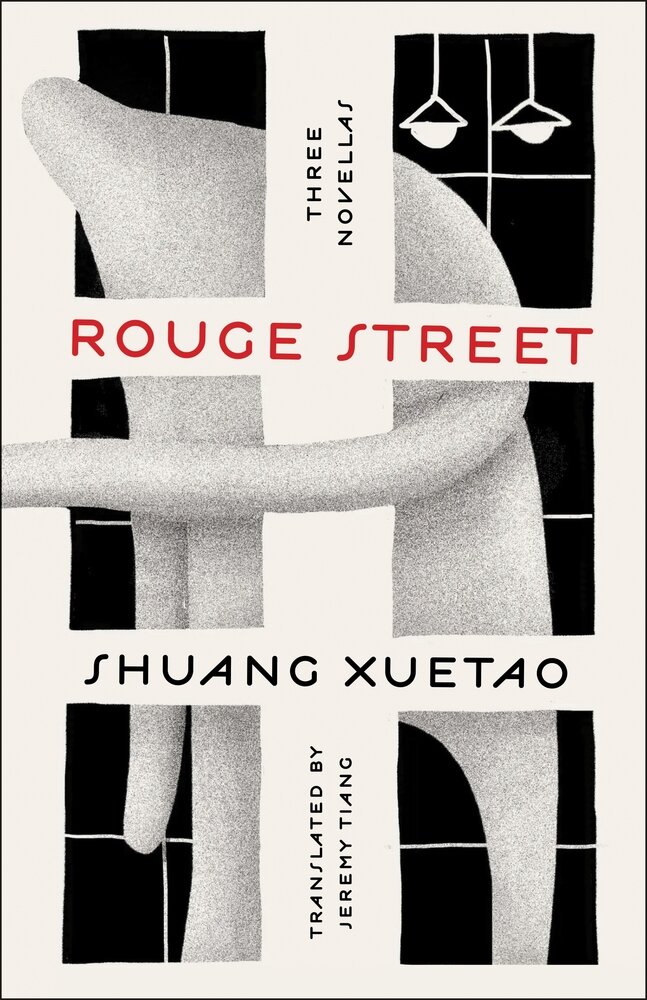
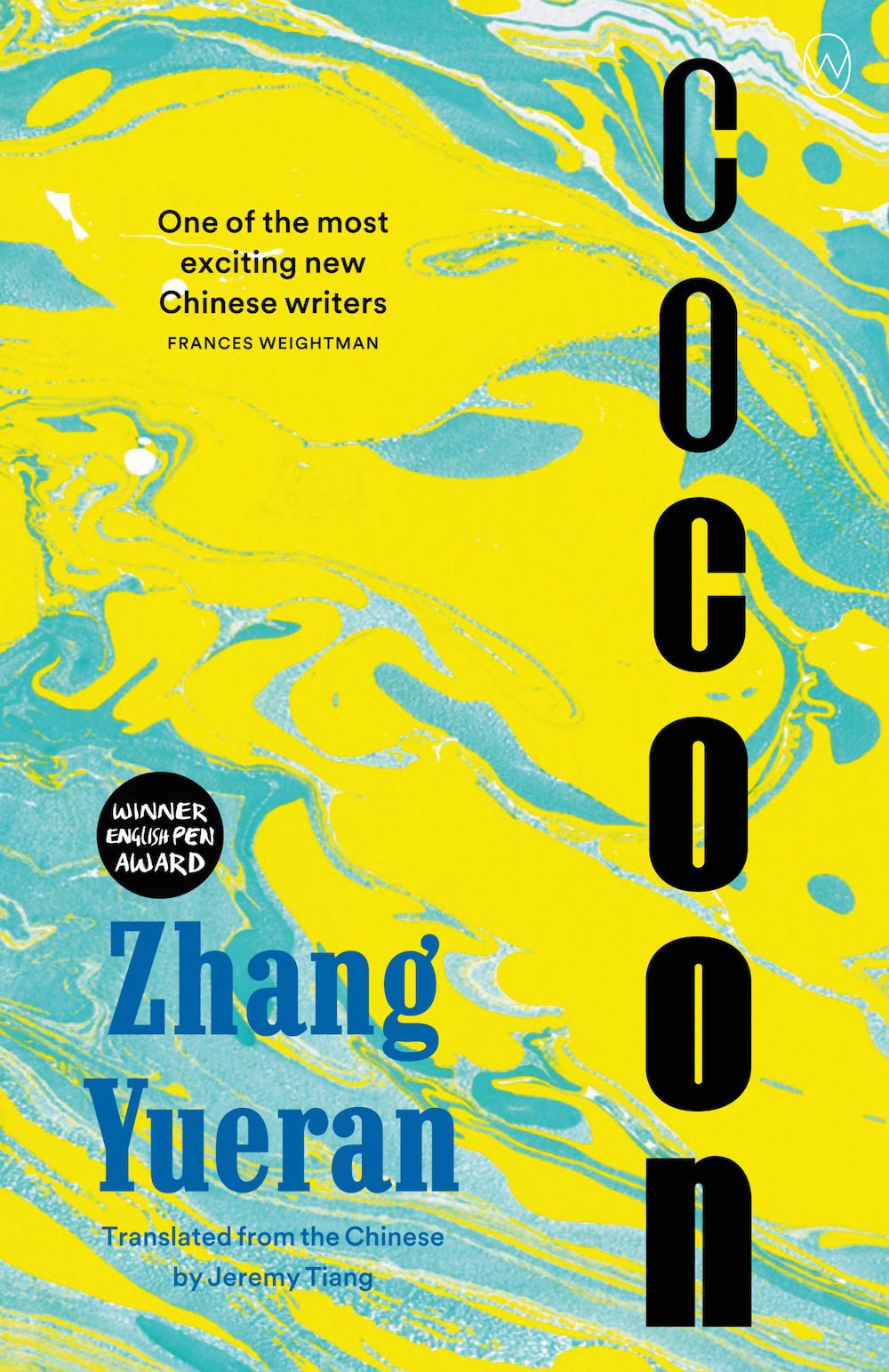
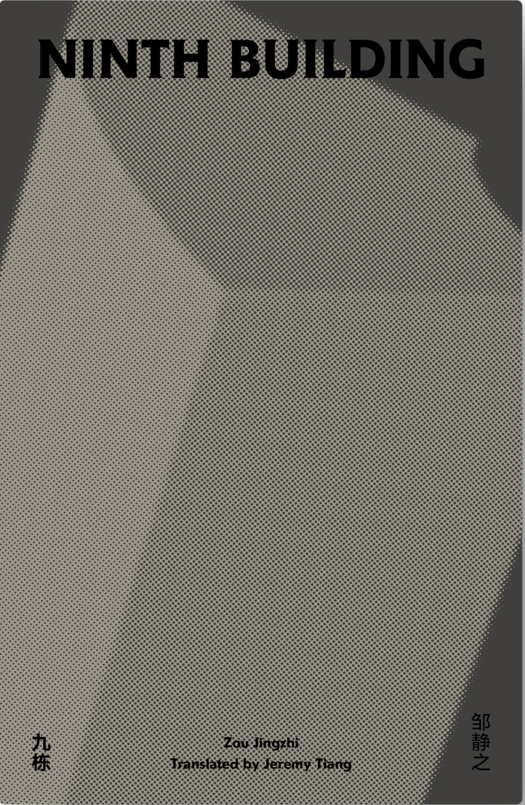
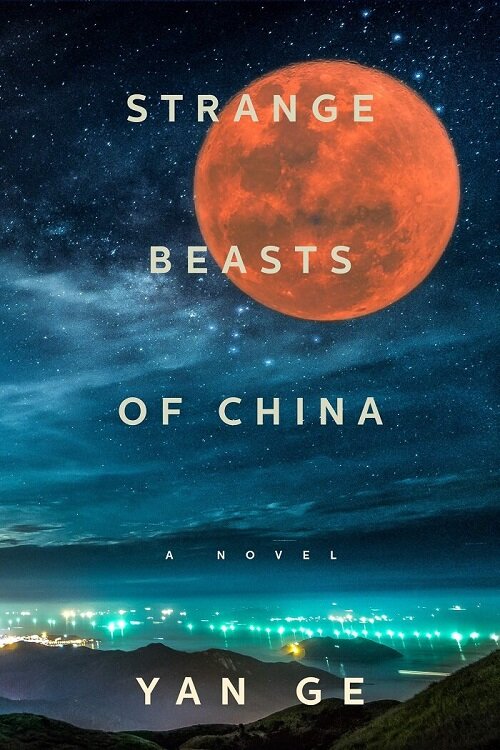

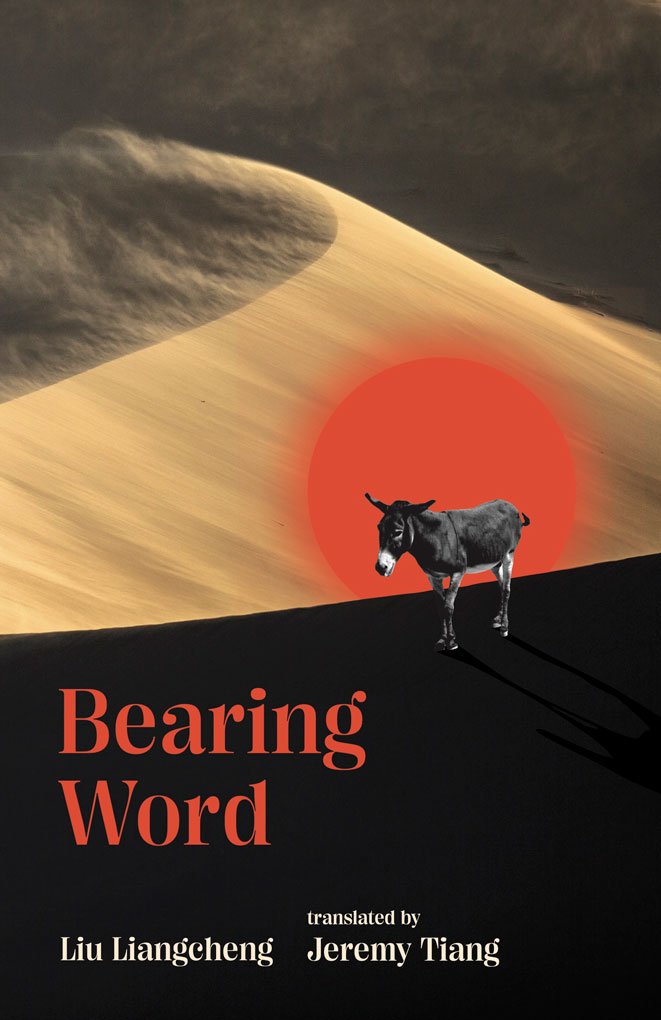
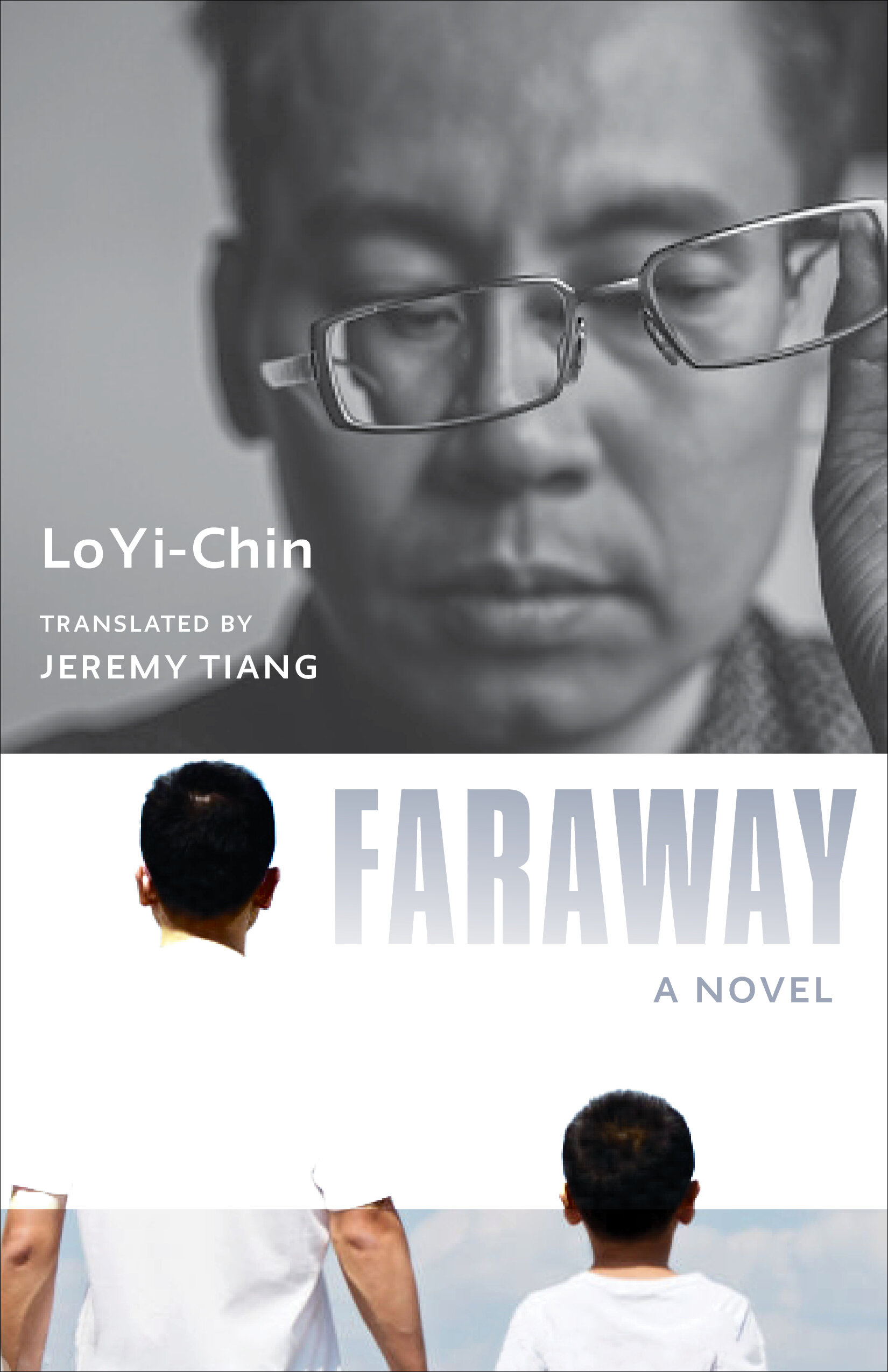
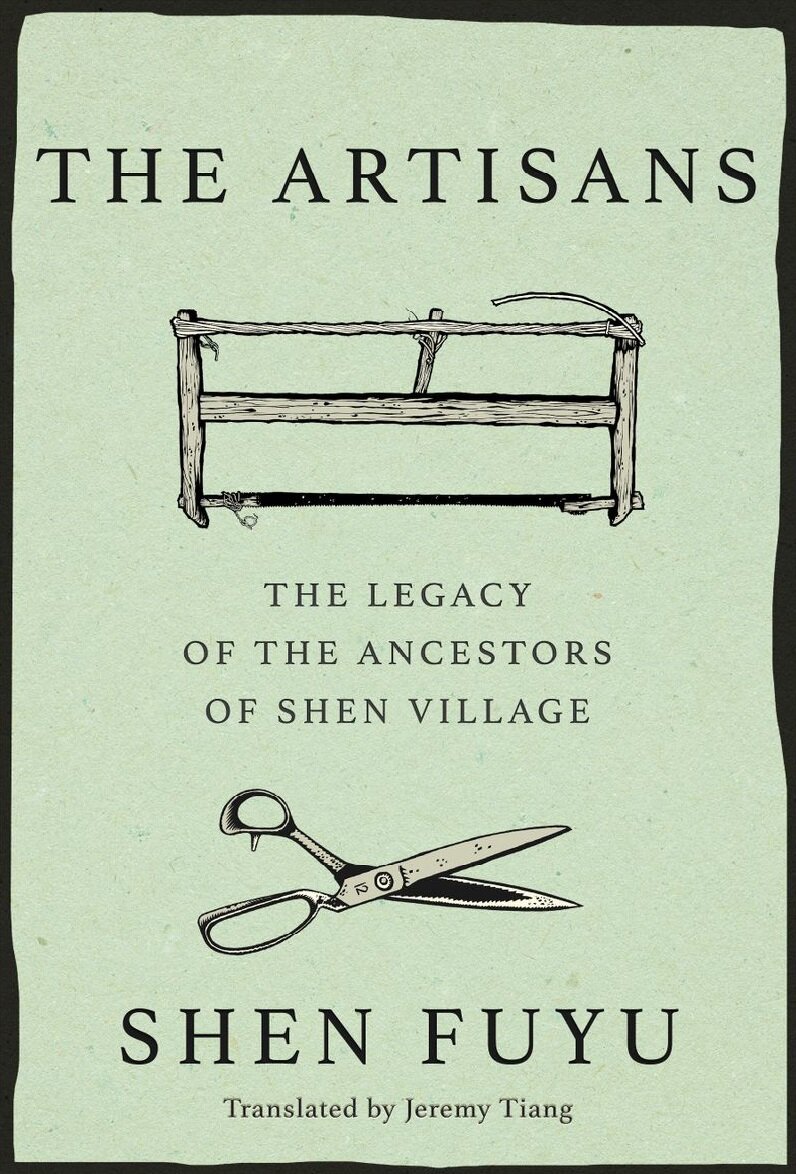
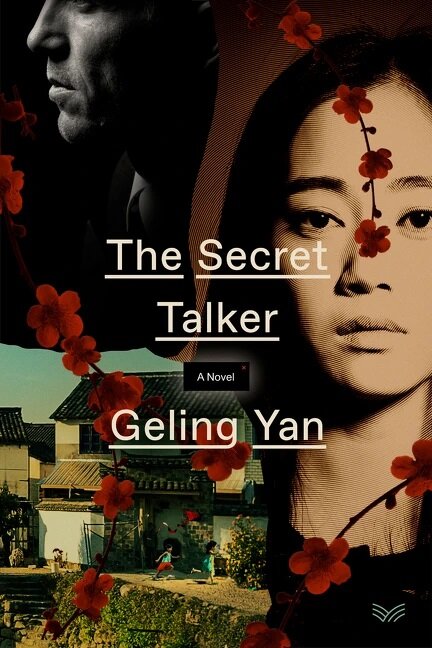
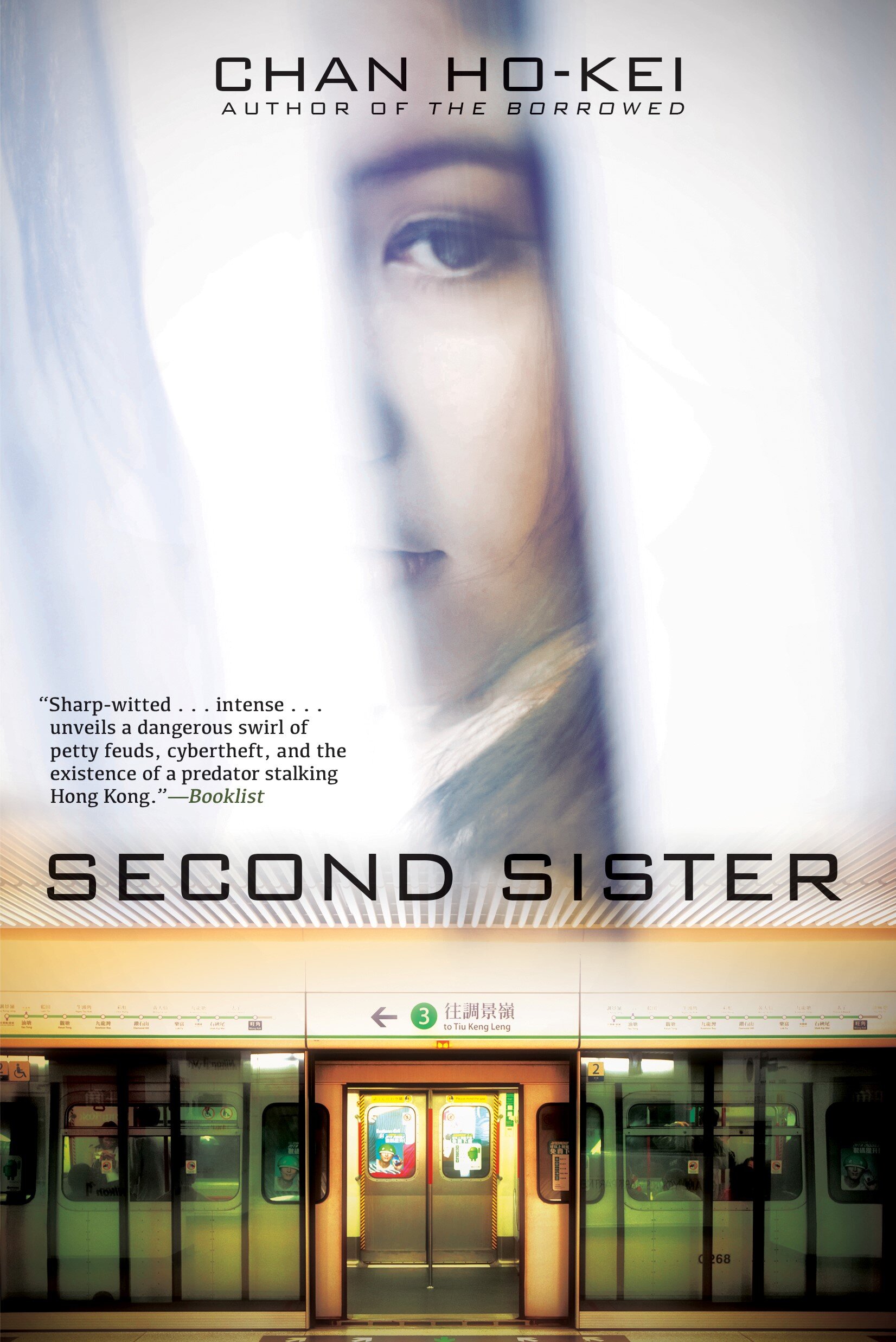

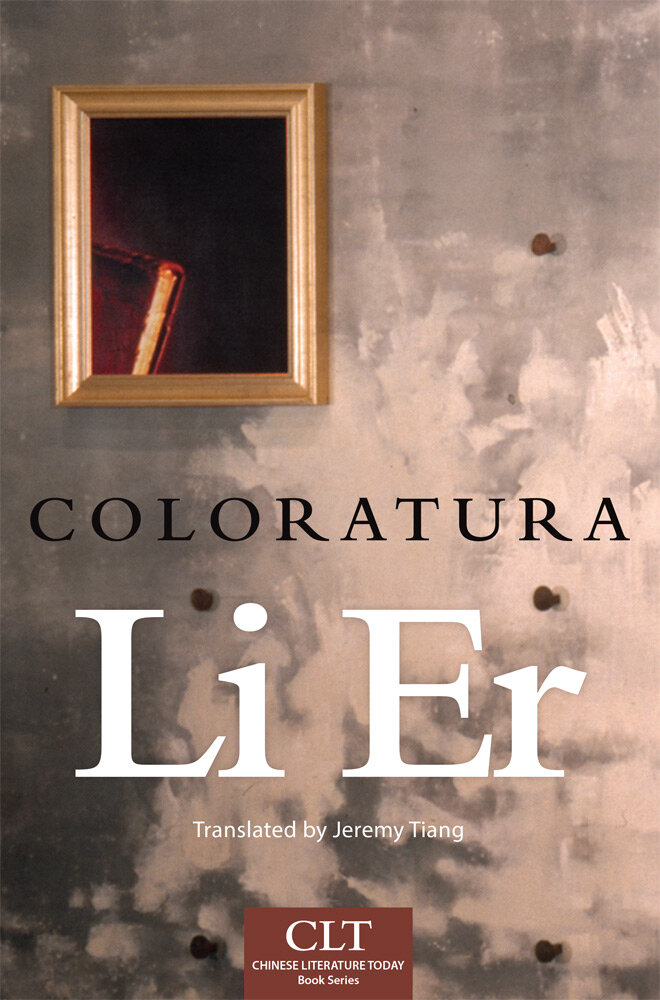

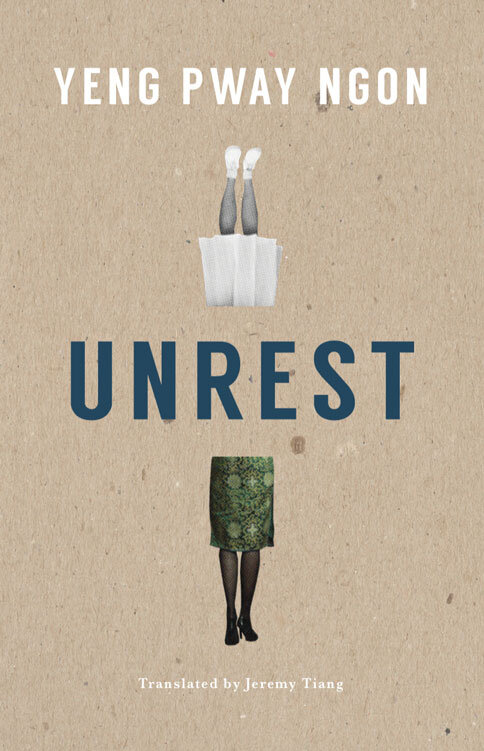
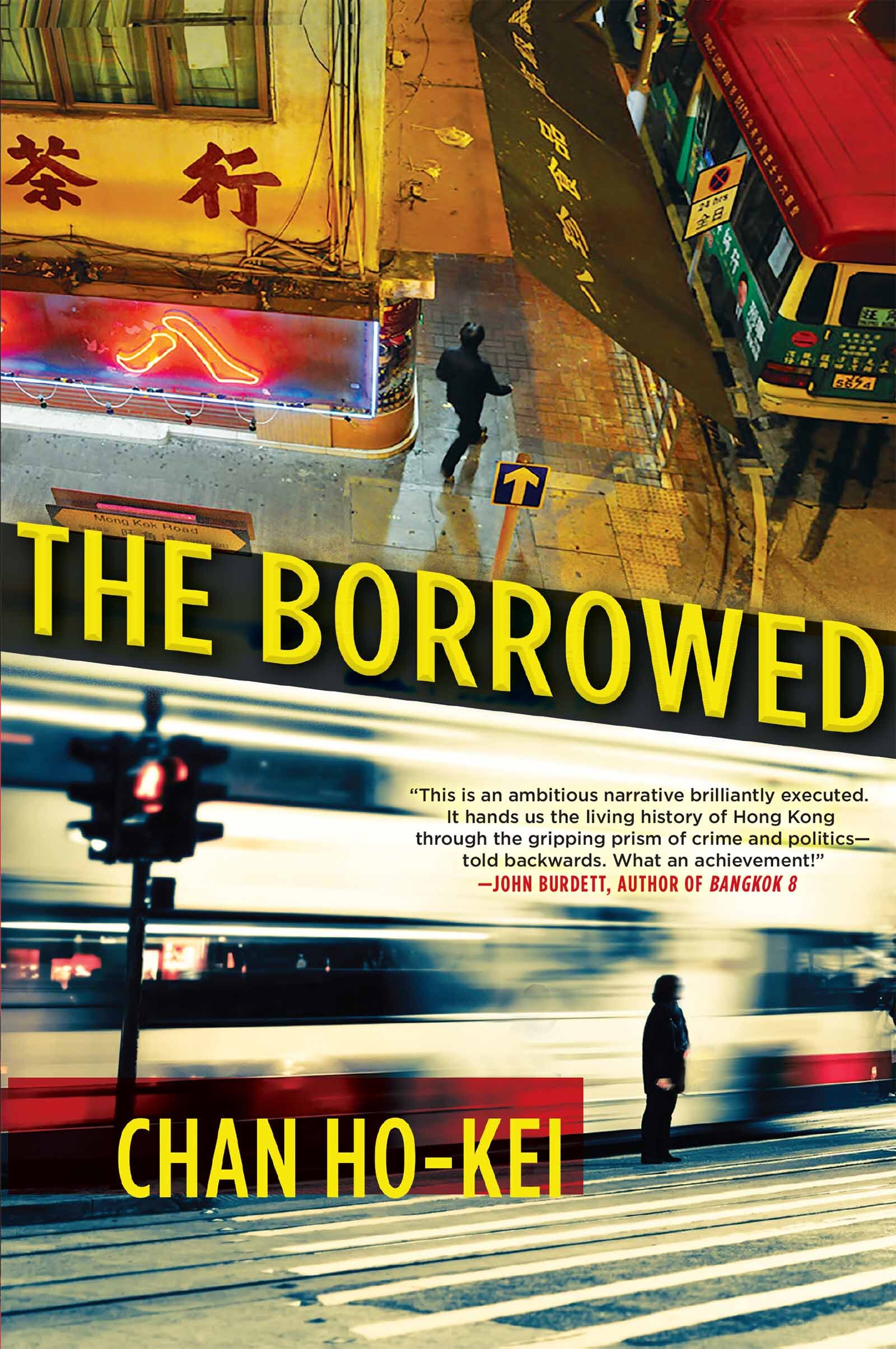
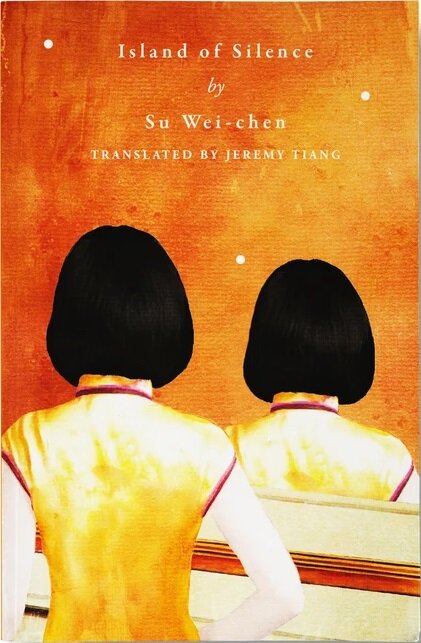
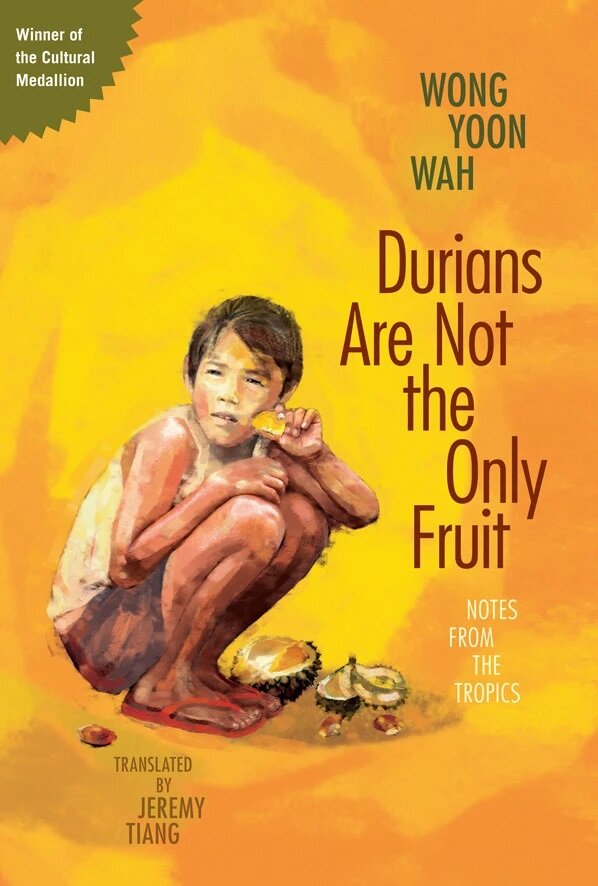
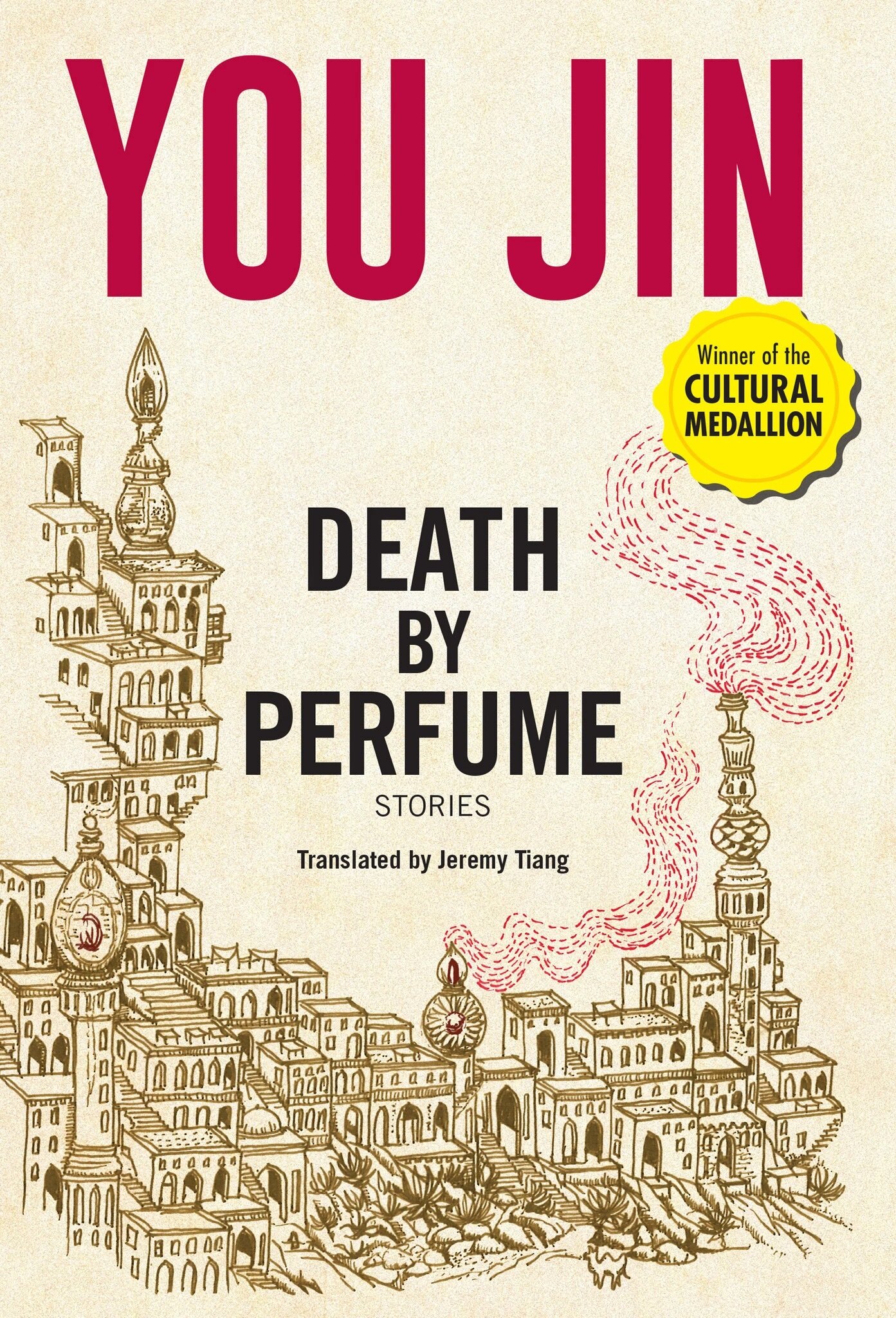
Frantz Fanon wrote in 1961 that 'Decolonisation is always a violent phenomenon,' meaning that the violence of colonialism can only be counteracted in kind. As colonial legacies linger today, what are the ways in which we can disentangle literary translation from its roots in imperial violence? Twenty-four writers and translators from across the world share their ideas and practices for disrupting and decolonising translation.
Contributors include Gitanjali Patel, Nariman Youssef, Kaiama L. Glover, Aaron Robertson, Khairani Barokka, Anton Hur, Ayesha Manazir Siddiqi, Eluned Gramich, Sofia Rehman, Layla Benitez-James, Mona Kareem, Lúcia Collischonn, Sawad Hussain, Yogesh Maitreya, Sandra Tamele, Hamid Roslan, Onaiza Drabu, Shushan Avagyan, Monchoachi (tr. Eric Fishman), Elisa Taber, M. NourbeSe Philip, Barbara Ofosu-Somuah and Madhu Kaza.
From the award-winning author, an enthralling novel about the unravelling lives of a nanny and the family she works for following the downfall of its patriarch, a prominent Chinese politician
Enter the world of an elite Chinese family: a life of luxury, limitless power, and around-the-clock service, which includes their trusted nanny Yu Ling. Slipping in and out of the shadows, careful to speak deferentially, meticulous in her care of their only son Kuan Kuan, Yu has served the family for years and knows their secrets. But little do they suspect that Yu has secrets of her own.
In the pressure-cooker political environment of China, the fates of even the most powerful families can reverse overnight. When Kuan Kuan’s father and grandfather are arrested and his socialite mother goes on the run, Yu is left behind to make a series of life-changing choices. Will she be able to outrun her own past, and how far will she go to claim what she considers her due?
From 1976 to 1989, Hai Fan was part of the guerrilla forces of the Malayan Communist Party. These short stories are inspired by his experiences during his thirteen years in the rainforest.
Struggling through an arduous trek, two comrades pine for each other but don't know how to declare their love; a woman who has annoyed all her comrades finally wins their approval when she finds a mythical mousedeer; improvising around the lack of ingredients, a perpetually hungry guerrilla makes delicious cakes from cassava and elephant fat. The rainforest may be a dangerous place where death awaits, but so do love, desire and hope.
Delicious Hunger is a book about the moments in and between warfare, when hunger is so palpable it can be tasted, and the natural world becomes an extension of the body. Deftly translated by Jeremy Tiang, Hai Fan's stories are about a group of people who chose to fight for a better world and, in the process, built their own.
“Hai Fan’s descriptions, translated by fellow Singaporean Jeremy Tiang, are lush and evocative.” ~Mekong Review
In this whimsical and inventive debut—perfect for fans of The Guest Cat and Calvino’s Invisible Cities—a young couple’s daily life is disrupted by their newly adopted cat, who soon initiates them into the wondrous world of felines.
Equal parts magical and humorous, Invisible Kitties tells the story of a young couple that one day accidentally comes into possession of a delightful, playful kitten. Bright eyed and bushy tailed, this new companion, aptly named Cat, upturns the routine of the narrator and her husband in their cramped apartment, and soon they find their existence forever altered as they gradually gain insight into the fantastical world of cats.
Every cat contains multitudes... Charting the couple’s ever-evolving relationship with cats –some they live with, others who exist solely in their imagination– Invisible Kitties introduces us to a coterie of extraordinary, physics-defying, death-defying cats. They drop from the sky, they grow from the soil, they transmute. They fly, flow, and evaporate. The young couple’s everyday life, often eclipsed by the drama of cats, offers a gentle glimpse of how joy can suddenly sneak into our lives.
Composed of sixty chapters written in Yu Yoyo’s elegant and witty style and complemented by the author’s own illustrations— Invisible Kitties is a celebration of ordinary life and the felines we love, deftly playing with the invisible boundaries between reality and imagination.
Muyu, a seventeen-year-old from a small village, came to Beijing for his piece of the dream: money, love, a good life. But in the city, daily life for him and his friends—purveyors of fake IDs and counterfeit papers—is a precarious balance of struggle and guile. Surveying the neighborhood from the rooftop of the apartment they all share, the young men play cards, drink beer, and discuss their aspirations, hoping for the best but expecting little more than the comfort of each other’s company. In these connected stories translated from Chinese by Eric Abrahamsen and Jeremy Tiang, Xu’s characters observe as others like them—workers, students, drifters, and the just plain unlucky—get by the best ways they know how: by jogging excessively, herding pigeons, building cars from scraps, and holding their friends close through the miasma of so-called progress.
Already compared to Hemingway and Murakami, Shuang Xuetao is one of the most highly celebrated young Chinese writers—his English-language debut, Rouge Street,collects three dazzling novellas of Northeast China, mixing realism, mysticism, and noir
“Anglophone readers will be glad to get to know this rising star.” ~Publisher’s Weekly
“Rouge Street, a collection of three novellas lucidly translated by Jeremy Tiang, affords an indelible introduction to Shuang’s work, which has been variously compared to that of Hemingway and Murakami.” ~Claire Messud, Harper’s Magazine
“Shuang pulls no punches, and the reader has much to gain by stepping into this world of matter-of-fact brutality, mystery and intrigue, unexpected humor and small but meaningful acts of personal honor.” ~Jing Tsu, New York Times
“that the three novellas collected in Rouge Street, centred on the lived experience of China’s working class, eking out a living in the remnants of the country’s industrial revolution, provide an eclectic mix of family drama, crime fiction, and a dollop of the fantastic.” ~Ian Mond, Locus Magazine
Cheng Gong and Li Jiaqi go way back. Both hailing from dysfunctional families, they grew up together in a Chinese provincial capital in the 1980s. Now, many years later, the childhood friends reunite and discover how much they still have in common. Both have always been determined to follow the tracks of their grandparents’ generation to the heart of a mystery that perhaps should have stayed buried. What exactly happened during that rainy night in 1967, in the abandoned water tower? Zhang Yueran’s layered and hypnotic prose reveals much about the unshakable power of friendship and the existence of hope. Hers is a unique fresh voice representing a new generation of important young writers from China, shedding a different light on the country’s recent past.
Essay by Zhang Yueran: The Story of the Nail
Winner of the Singapore Literature Prize for Best Translation 2024
“Zhang’s prose is meticulously economical and is well served by her long-term translator, Jeremy Tiang. In this expertly constructed novel she achieves a masterful blend of narrative suspense, emotional intimacy and self-discovery” ~Isabel Hilton, Guardian
“Cocoon… displays the maturity, ambition and control that mark her not just as a mascot for the ‘post-1980s generation’—a designation its leading names cordially detest—but a writer of solid achievement and even greater promise. In English, Cocoon also benefits hugely from a beautifully voiced translation by Singapore-born, New York-based Jeremy Tiang, a rising star as a novelist and translator.” ~Boyd Tonkin, Wall Street Journal
"Cocoon is a daring, innovative novel, grounded in a reckoning with the past, but a past reimagined and reshaped in ingenious, disorientating ways.” ~Madeleine Thien, Times Literary Supplement
“Zhang Yueran’s novel Cocoon is her third to come into English, thanks to translator Jeremy Tiang. At 39, she’s one of her country’s literary lights – Cocoon has been a bestseller there – and she crafts her story with patient skill, conjuring the dirt of provincial China, and decades of hurt between lovers and friends, with a procedural’s steady roll.” ~Cal Revely-Calder, The Telegraph
“Zhang Yueran, one of the most renowned young writers from China, tells the story of the country’s past in a different perspective and with a unique insight. In her beautiful and meaningful prose, hope and love reside where trauma heals.” ~Jianan Qian, The Millions
“In lyrical prose, Zhang deeply humanizes her leads as they look to the past in an effort to understand themselves. It adds up to a remarkable and tragic story of family and community.” ~Publisher’s Weekly (starred review)
Ninth Building is a fascinating collection of vignettes drawn from Zou Jingzhi’s experience growing up during the Cultural Revolution, first as a boy in Beijing and then as a teenager exiled to the countryside. Zou poetically captures a side of the Cultural Revolution that is less talked about—the sheer tedium and waste of young life, as well as the gallows humor that accompanies such desperate situations.
Honford Star (UK)
Open Letter Books (US)
International Booker Prize longlist 2023
“Zou conveys sharp childhood recollections” ~The New Yorker
In the city of Yong’an, a fiction writer and amateur cryptozoologist is commissioned to uncover the stories of its fabled beasts. Guided – and often misguided – by her elusive university professor and his scrappy sidekick-student Zhong Liang, our narrator finds herself on a mission to track down each species. And as she blunders from one implausible situation to the next, she comes one step closer to revealing her own multifaceted beastliness…
Part detective story, part metaphysical enquiry, Strange Beasts of China addresses existential questions of identity, being, love and morality with whimsy and grace.
Winner of an English PEN award
Warwick Prize for Women in Translation: Runner-up
New York Times 100 Notable Books of 2021
“Despite the restless shifts in tone, the style never feels disjointed, in large part due to Tiang’s tremendous, fine-drawn translation.” ~Washington Post
“The construction of a text with such a mixed tone, which never becomes jarring, is one of the highest achievements of Yan Ge’s book and that of her translator, Jeremy Tiang.” ~World Literature Today
“Yan Ge—who writes in Sichuanese, Mandarin and English—and her talented translator Jeremy Tiang have created a mesmerizing experience.” ~Chicago Review of Books
“Given an enjoyably rococo translation by Jeremy Tiang (who isn't afraid to wield words like ‘puissant’)” ~Wall Street Journal
“The atmosphere of “Strange Beasts of China” is delightful. Through the narrator’s futile quest to catalog beasts, Yan captures the fluidness of city life, the way urban space defies definition even for people hellbent on making sense of it.” ~New York Times
“Jeremy Tiang’s pitch-perfect English translation.” ~Vulture
“A wildly imaginative and socially conscious novel that’s well worth your time.” ~Locus Magazine
Tilted Axis — UK
Melville House — US
On a December morning in 1982, the courtyard of a Beijing siheyuan begins to stir. Auntie Xue’s son Jiyue is getting married today, and she is determined to make the day a triumph. Despite Jiyue’s woeful ignorance in matters of the heart―and the body. Despite a chef in training tasked with the onerous responsibility of preparing the banquet. With a cross-generational multitude of guests, from anxious family members to a fretful bridal party―not to mention exasperating friends, interfering neighbors, and wedding crashers―what will the day ahead bring?
Liu Xinwu’s tale weaves together a rich tapestry of characters, intertwined lives, and stories within stories. The Wedding Party is a touching, hilarious portrait of life in this singular city, all packed into a Beijing courtyard on a single day that manages to be both perfectly normal and utterly extraordinary at the same time.
“The author does a fantastic job of unfurling each character's inner life… This glimpse of the recent past is a treat.” ~Publishers Weekly (starred review)
“You embark on The Wedding Party (expertly translated here by Jeremy Tiang) much like you arrive at a celebration of extended family, friends and neighbours – with hope, joy and good humour.” ~Paul French, South China Morning Post
“The Wedding Party is a marvelous story of a single December day in the life of an atmospheric Beijing compound populated by sprawling cast of quirky and all-too-human characters, all-written with style and wit. All it was missing was a pitch-perfect translation by Jeremy Tiang.” ~Peter Gordon, Asian Review of Books
“ Liu writes, and Tiang translates, with humor and love and kindness” ~Will Heath, Book Browse
The world is full of ghosts, but only donkeys can see them. Meanwhile, in the human world, war has been waging for a hundred years with no resolution in sight, the death toll climbing higher and higher like the pagodas of sound built by donkeys braying and humans chanting scripture.
Hsieh, a young jenny, is thrust into the care of Ku, who is tasked with bringing her across the immense desert between the two warring kingdoms. On a year-long journey filled with fearsome battles, headless ghosts and randy jacks, donkey and man come to realise the futility of this endless war and are forced to confront the most fundamental law of nature: everything has a soul.
Set in Liu Liangcheng’s home region of Xinjiang during ancient times, Bearing Word explores the power of sound and the many languages scattered across the vast expanse of the Gobi Desert, in a narrative set against the backdrop of a century-long war.
“In Liu’s novel, everything comes alive, and every creature has agency: donkeys see sounds and ghosts, dogs decide when the moon will appear in the sky at night (which is why they howl at it), and chickens, with their crows, determine when day breaks. But, most importantly, in Liu’s novel, everything wants to speak, everyone has sounds to make and heavenly castles to build. The novel is a journey into the crevices of language, the dark spots where limitations become possibilities and vice versa.” ~Serena de Marchi, Cha
A fictionalized version of Taiwanese author Lo Yi-Chin is stranded in mainland China, attempting to bring his comatose father home after he’s had a stroke. Faraway is a powerful meditation on the nature of family and the many ways blood can both unite and divide us. A deft portrayal of the rift between China and Taiwan through an intimate view of a father-son relationship that bridges this divide. One of the most celebrated writers in Taiwan, Lo has been greatly influential throughout the Chinese-speaking world.
“Thematically rich and intriguing.” ~Kirkus Reviews (starred review)
“Lo’s language, beautifully translated by Jeremy Tiang, is a life raft in the chaos, images burned in the mind” ~New York Times
“Faraway is a work of deep introspection and sometimes overflowing imagery, a meditation on ageing and family, a memoir or novel of the wearing forces of illness, duty and bureaucracy.” ~South China Morning Post
Featured on the Translated Chinese Fiction podcast
Evoking Studs Terkel, Shen Fuyu delivers a rollicking deep dive into working life in a small village in rural China, tracing the last 100 years of history.
Born in Shen Village in Southeast China, Shen Fuyu grew up in a family of farmers. Years later, Shen, now a writer, returned to his hometown to capture the village’s rich history in the face of industrialization.
Through his own childhood memories and those of his ancestors, Shen resurrects the working life of Shen Village through interlinked stories of fifteen artisans as their lives intersect over the course of a century. While Shen’s view of his hometown and his heritage is tinged with nostalgia, he does not romanticize it. Nor does he sugarcoat the backbreaking difficulty of life in rural China, but he still captures its small satisfactions and joys of loving one’s work with a great deal of care.
In an acerbic, earthy and unsparing style that swings from poignancy to comedy, sometimes within a single paragraph, Shen evokes the spirits of these workers–a bamboo-weaver and his beloved bull, a carpenter’s magical saw, the deserter who became the village lantern-maker and a rebellious woman who beats up her own kidnapper.
A reflection on the vicissitudes of small-town life during the epic shift from agricultural to industrial civilization, The Artisans vividly details the hardships, friendships and communal mythmaking of a disappearing community.
Beautiful, diligent, and passive, Hongmei is the perfect wife to Glen, an intelligent and caring college professor. But her quiet life in Northern California fractures when a mysterious person begins e-mailing her, pulling her into an enthralling and frightening game of cat-and-mouse. Who is stalking her? And how does this mysterious stranger know her deepest, darkest secrets?
As Hongmei is forced to confront her own dark past in China, the façade of her idyllic life is laid bare. Increasingly desperate and self-destructive, her one hope is to turn the tables on her tormentor. Investigating the stalker’s own secret history may irrevocably tear her marriage and her world apart—a risk she must take to regain control of her life.
From the author of the acclaimed novel The Borrowed, a very timely and propulsively plotted tale of cyberbullying and revenge, about a woman on the hunt for the truth about her sister’s death.
In the 1910s, thirteen-year-old Leong Ping Hung comes to Singapore from China to seek his fortune. Decades later, he is a lonely old man mourning his shattered dreams. His granddaughter Yu Sau struggles to take care of him while trying to make sense of her own life in a rapidly changing country. He speaks Cantonese, and she Mandarin – but will they be able to find common ground through a shared love of Cantonese opera? As Yu Sau looks to her family’s past to understand her present, she begins to uncover the secrets that went missing along with the old man’s cherished opera costume.
Set against the turbulent backdrop of the Chinese Civil War, Coloratura revolves around the mysterious Ge Ren, whose story is told by three narrators and a host of other voices. Who was Ge Ren really? Just about the only thing anyone can agree on is that he is dead. But how he died, and who he was when alive, are less than certain. Was Ge Ren a hero, a Nationalist or Communist, a poet, translator, scholar, or spy—or some combination of all these identities? And how much of his story is merely fanciful “coloratura” nonsense?
The search for Ge Ren takes us from Chairman Mao’s stronghold at Yan’an to a barren People’s Commune, and then farther afield, with excursions into Russia, Japan, and even a small town in England. Many of the characters and incidents are actual historical figures and events, woven seamlessly into the fictional storyline. Told with swashbuckling brio and painstaking historical detail, Coloratura is both an illuminating journey through twentieth-century Chinese history and a profound exploration of the elusive nature of truth.
“You’ll be hard-pressed to find a Hollywood memoir with this much blood and (broken) bone” (Entertainment Weekly) in this candid, thrilling autobiography from one of the most recognizable, influential, and beloved cinematic personalities in the world.
Everyone knows Jackie Chan. Whether it’s from Rush Hour, Shanghai Noon, The Karate Kid, or Kung Fu Panda, Jackie is admired by generations of moviegoers for his acrobatic fighting style, comic timing, and mind-bending stunts. In 2016—after over fifty-five years in the industry, over 200 films, and many broken bones—he received an honorary Academy Award for his lifetime achievement in film. But Jackie is just getting started.
Now, in Never Grow Up, the global superstar reflects on his early life, including his childhood years at the China Drama Academy (in which he was enrolled at the age of six), his big breaks (and setbacks) in Hong Kong and Hollywood, his numerous brushes with death (both on and off film sets), and his life as a husband and father (which has been, admittedly and regrettably, imperfect).
When the fervour of revolution is gone, what remains?
Four leftist teenagers in 1950s Malaya dedicate themselves to overthrowing colonialism and bringing about a better world. With time, their paths diverge — into capitalism, into adultery, into the dark heart of the Cultural Revolution. Disillusioned and middle-aged, they look back at their lives from the prosperous but soulless 1980s, wondering what has become of their dreams and ideals.
Winner of the Singapore Literature Prize
”Jeremy Tiang excels at translating the long, complex sentences favoured by Chinese into a colloquial English:… To capture the curt irony of the original in English is a translation coup, and Tiang demonstrates similarly good judgment throughout the novel.” ~Dylan Suher, The White Review
"Unrest benefits tremendously from the efforts of its translator Jeremy Tiang." ~Peter Gordon, South China Morning Post
From award-winning Hong Kong writer Chan Ho-kei, The Borrowed tells the story of Kwan Chun-dok, a Hong Kong detective whose career spans fifty years of the territory’s history. A deductive powerhouse, Kwan becomes a legend in the force, nicknamed “the Eye of Heaven” by his awe-struck colleagues. Divided into six sections told in reverse chronological order—each of which covers an important case in Kwan’s career and takes place at a pivotal moment in Hong Kong history from the 1960s to the present day—The Borrowed follows Kwan from his experiences during the Leftist Riot in 1967, when a bombing plot threatens many lives; the conflict between the HK Police and ICAC (Independent Commission Against Corruption) in 1977; the Tiananmen Square Massacre in 1989 to the Handover in 1997; and the present day of 2013, when Kwan is called on to solve his final case, the murder of a local billionaire, while Hong Kong increasingly resembles a police state. Along the way we meet Communist rioters, ultra-violent gangsters, stallholders at the city’s many covered markets, pop singers enmeshed in the high-stakes machinery of star-making, and a people always caught in the shifting balance of political power, whether in London or Beijing–all coalescing into a dynamic portrait of this fascinating city.
Tracing a broad historical arc, The Borrowed reveals just how closely everything is connected, how history always repeats itself, and how we have come full circle to repeat the political upheaval and societal unrest of the past. It is a gripping, brilliantly constructed novel from a talented new voice.
“Sprawling and dense, this novel will satisfy your procedural jones.” ~Kirkus Reviews
Island of Silence is a mesmerising psychological portrait of evasion. Chen-mian, a young Taiwanese woman with a troubled background, can’t bear the reality of her life, and creates an idealised fantasy existence – ‘the other Chen-mian’, a happily-married woman with a stable, loving family. Chen-mian is obsessed with islands, finding them safer and more contained than larger pieces of land. She travels to Hong Kong, Bali and Singapore, trying to find a secure hiding place. The lives of the two Chen-mians become more surreal and intertwined, and it becomes difficult to tell where reality ends and fantasy begins.
Winner of the China Times Million Yuan Literary Prize for the Novel (Jury Prize, 1994)
In this mix of memoir, essay and nature writing, Wong Yoon Wah evokes the beauty and seduction of the tropical rainforest and rubber plantations of his childhood in Malaya. He examines what surrounds us: the fruits we grow, the food we eat, the trees and animals that thrive in our midst. Along the way, we gain fascinating insights: how thunder tea rice acquired its name; how early settlers used the rain tree to tell time; how the behaviour of ants can tell us when a monsoon is about to arrive. Both personal and informative, this selection of Wong’s essays is a stunning re-addition to the creative non-fiction landscape.
“Durians Are Not the Only Fruit is a delightfully atypical publication to find in English...Jeremy Tiang smoothly renders Wong’s musings and reminiscences, whetting the appetite for the translator’s own writing.” ~Josh Stenberg, World Literature Today
In the late 1970s, a young Singaporean writer arrives in Jeddah with an infant son. She encounters a strange and often hostile environment with curiosity, empathy and good humour. In this collection of linked stories, the narrator confronts, among others, a bored expat wife with dangerously extravagant tastes, a divorced engineer with the face of a camel, and a desperate security guard who finds solace in downing bottles of perfume. Beguiling, plaintive and profoundly insightful, You Jin’s fiction is a vivid evocation of Saudi society.
SHORTER TRANSLATIONS
Paris Friend by Shuang Xuetao — The New Yorker
Speedwell by Zhang Yueran — Granta
The Excitements of Spring by Zou Jingzhi — Granta
Heart by Shuang Xuetao — The New Yorker
Bottlenose by Shuang Xuetao — Astra Magazine
Cherry-Red Ivory by Hai Fan — adda
Teeter-Totter by Shuang Xuetao — Brick Magazine
Stories by Enoch Tam and Yan Ge — That We May Live (Calico)
Picun Writers Group - Part One & Part Two - LARB China Channel
Extremety by Hsu Yu-Chen — The White Review
Swimming Pool by Hsu Yu-Chen — The Offing
The Case That Got Away by A Yi - Freeman’s / Lithub
Lake by Zhang Yueran - Brooklyn Rail
Anti-Love Poem for the Twenty-First Century by Un Sio San - Cha
ESSAYS ABOUT TRANSLATION
Into the Rainforest: Translating Hai Fan - The Margins
Now They See Us: On Translators’ Labor and Invisibility — The Margins
I-Novel, You-Novel, True-Novel, False-Novel — Columbia University Press blog
In Memoriam Yeng Pway Ngon (1947–2021) — QLRS
The World Is Not Enough — Asymptote
Make It Make Sense - Korean Literature Now
Many Englishes, Many Chineses - Poets & Writers
Naming Rights - Stand Magazine